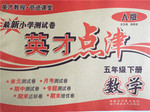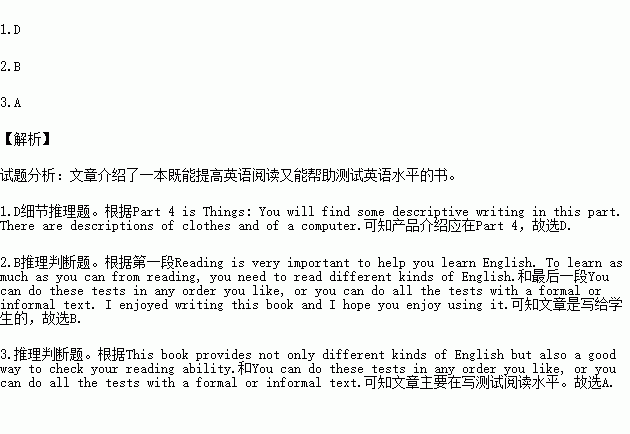题目内容
Reading is very important to help you learn English. To learn as much as you can from reading, you need to read different kinds of English. This book provides not only different kinds of English but also a good way to check your reading ability.
There are four parts in the book:
Part 1 is Messages: In this part somebody wants to give information in writing to somebody else. There is a test on timetables and a test on text messages.
Part 2 is People: In this part all the tests are about people. For example, there is an informal letter between friends. There is formal ( 正式的) English in biography ( 传记). There is a job application as a model to help with your writing, as well as testing your reading.
Part 3 is Places: In this part, too many different kinds of English are shown, some informal and some formal. There is the informal English of a holiday postcard. There is also the formal English in a letter of complaint.
Part 4 is Things: You will find some descriptive writing in this part. There are descriptions of clothes and of a computer.
You can do these tests in any order you like, or you can do all the tests with a formal or informal text. I enjoyed writing this book and I hope you enjoy using it.
1. We can find the introduction to a product in ______,
A. Part 1 B. Part 2 C. Part 3 D. Part 4
2.The passage is most probably written for _____.
A. test designers B. students
C. parents D. teachers
3.What is the best title of the book?
A. Test Your Reading
B. Help with Your Writing
C. Learn Different Kinds of English
D. Practice English in Different Ways
 全优冲刺100分系列答案
全优冲刺100分系列答案 英才点津系列答案
英才点津系列答案
